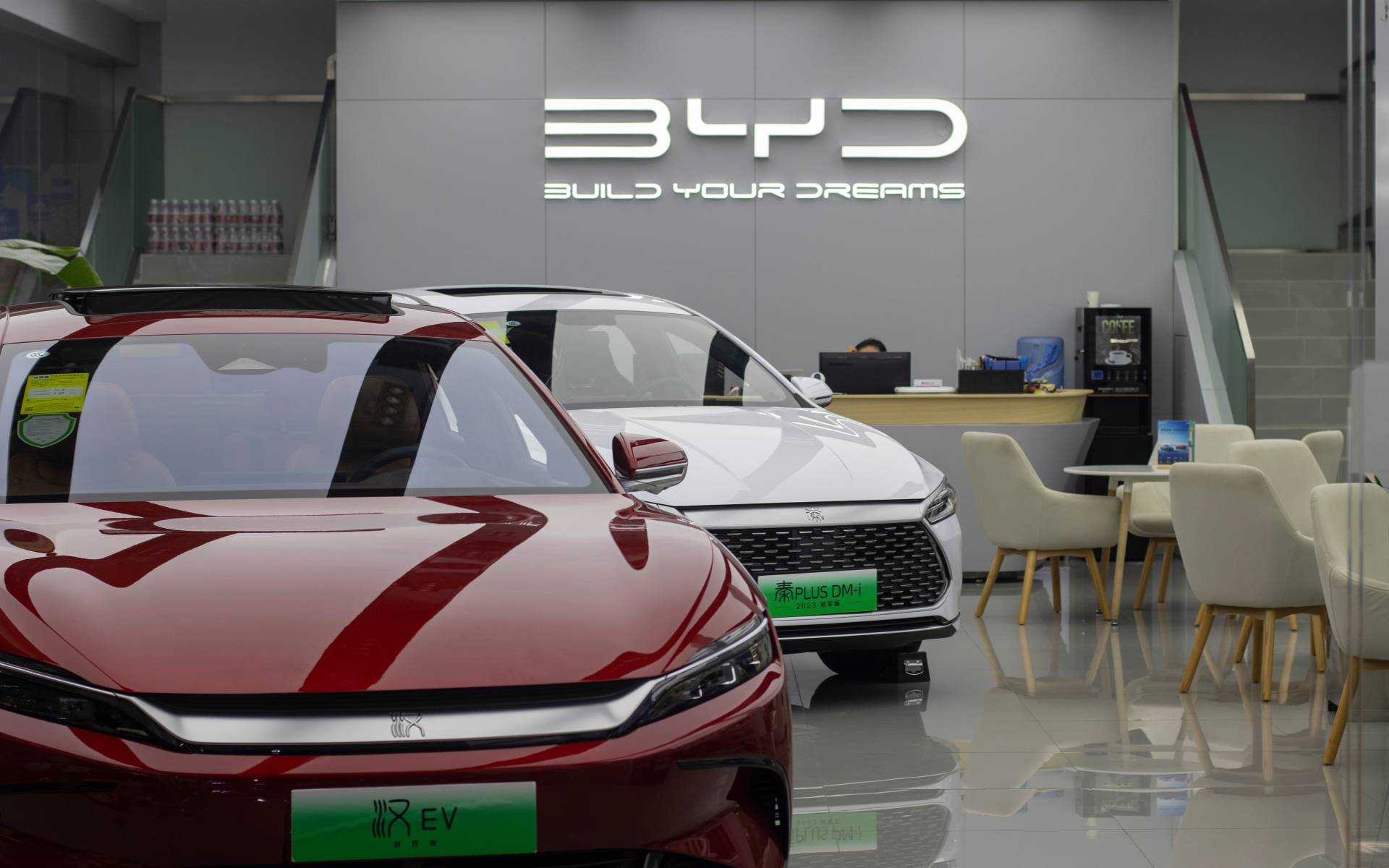U.S. to Officially Ban Vehicles Containing Chinese Tech

The United States finalized a rule Tuesday effectively barring Chinese technology from cars in the American market, taking aim at software and hardware from the world's second biggest economy over national security risks.
The announcement, which also pertains to Russian technology, comes as outgoing President Joe Biden wraps up efforts to step up curbs on China, and after a months-long regulatory process.
Read also
- Trump-Led U.S. Government Would Axe EV Tax Credit, Report Claims
- Costco-Branded EV Fast Chargers Rolling Out at Costco Stores in U.S.
The rule follows an announcement this month that Washington is mulling new restrictions to address risks posed by drones with tech from adversaries like China and Russia.

"Cars today aren't just steel on wheels. They're computers," said Commerce Secretary Gina Raimondo.
She noted that modern vehicles contain cameras, microphones, GPS tracking and other technologies connected to the internet.
"This is a targeted approach to ensure we keep PRC and Russian-manufactured technologies off American roads," she added, referring to the People's Republic of China.
The final rule currently applies just to passenger vehicles under 10,001 pounds, said the U.S. Commerce Department.

It plans, however, to issue separate rulemaking aimed at tech in commercial vehicles like trucks and buses "in the near future."
For now, Chinese electric vehicle manufacturer BYD, for example, has a facility in California producing buses and other vehicles.
National Economic Advisor Lael Brainard added that "China is trying to dominate the future of the auto industry." But she said connected vehicles containing software and hardware systems linked to foreign rivals could result in misuse of sensitive data or interference.

"Nexus" to China
Under the latest rule, even if a passenger car were U.S.-made, manufacturers with "a sufficient nexus" to China or Russia will not be allowed to sell such new vehicles incorporating hardware and software for external connectivity and autonomous driving.
This prohibition on sales takes effect for model year 2027.
The restriction also bans the import of the hardware and software if they are linked to Beijing or Moscow.
The software curbs take effect for model year 2027, while the hardware controls come into play for model year 2030.

Just a day earlier, Washington announced fresh export rules on chips used for AI, furthering efforts to make it hard for China and other rivals to access the technology. The restrictions also tightened rules surrounding the sharing of cutting-edge AI models.
Washington has expanded efforts in recent years to curb exports of state-of-the-art chips to China, which can be used in AI and weapons systems, as Beijing's tech advancements spark concern among US policymakers. But the rollout of many plans will fall to incoming President-elect Donald Trump, whose return to the White House early next week promises a raft of changes to government policies.
On Monday, Biden urged the Trump administration not to cede AI dominance to China.
"We must not offshore artificial intelligence, as we once did with computer chips and other critical technologies," Biden said in an address at the State Department. "We are in the lead, and we must stay in the lead."







